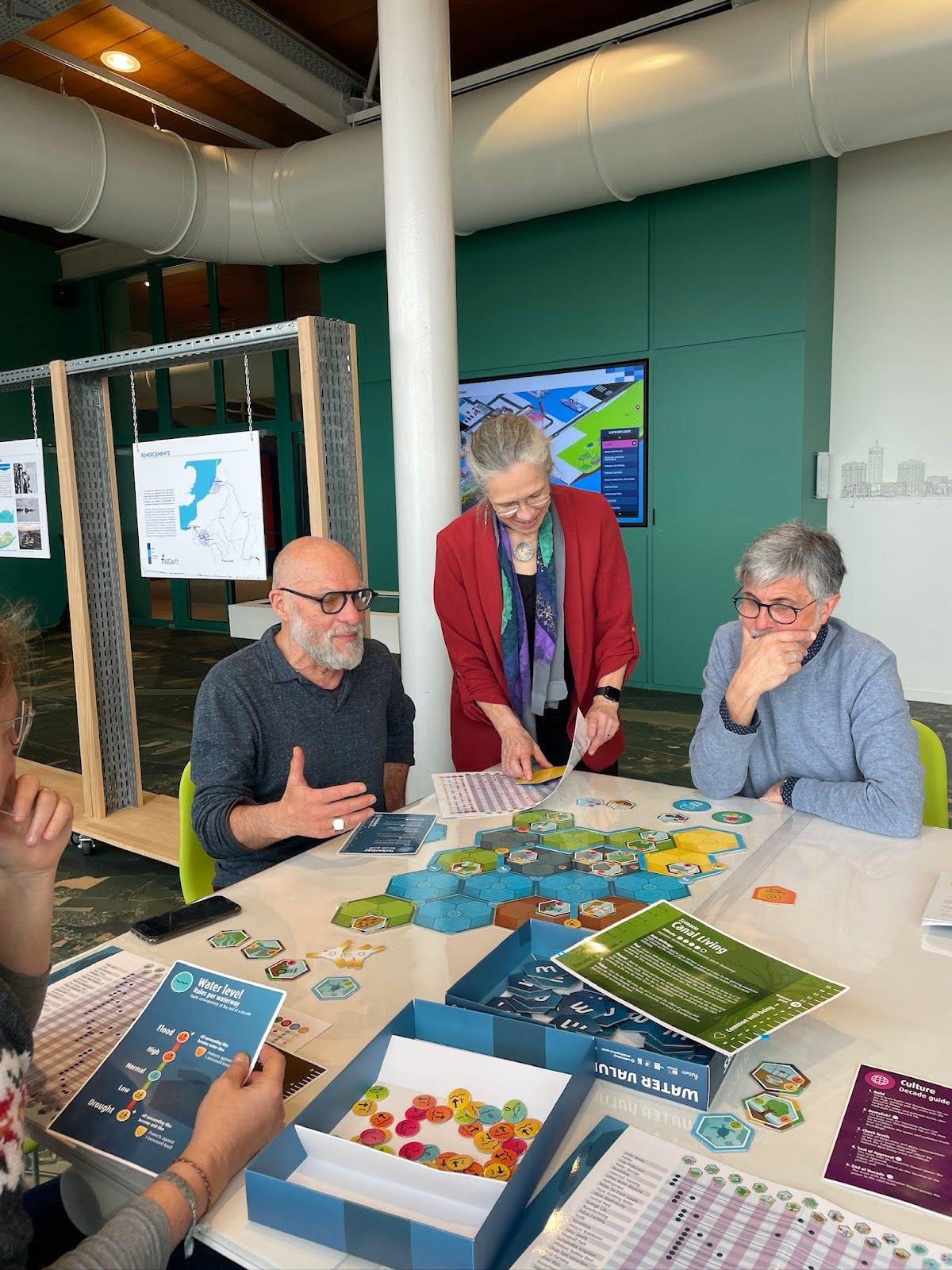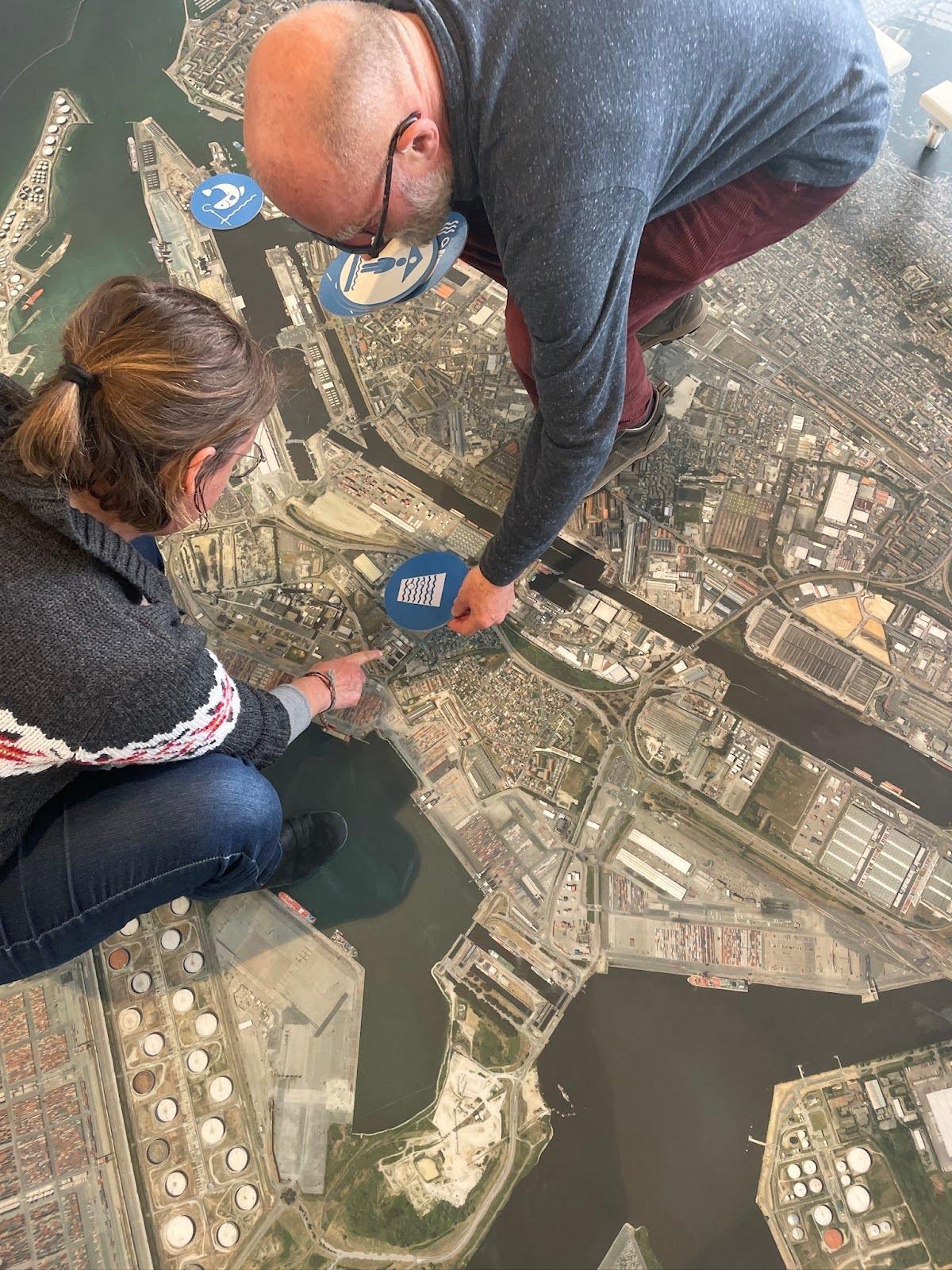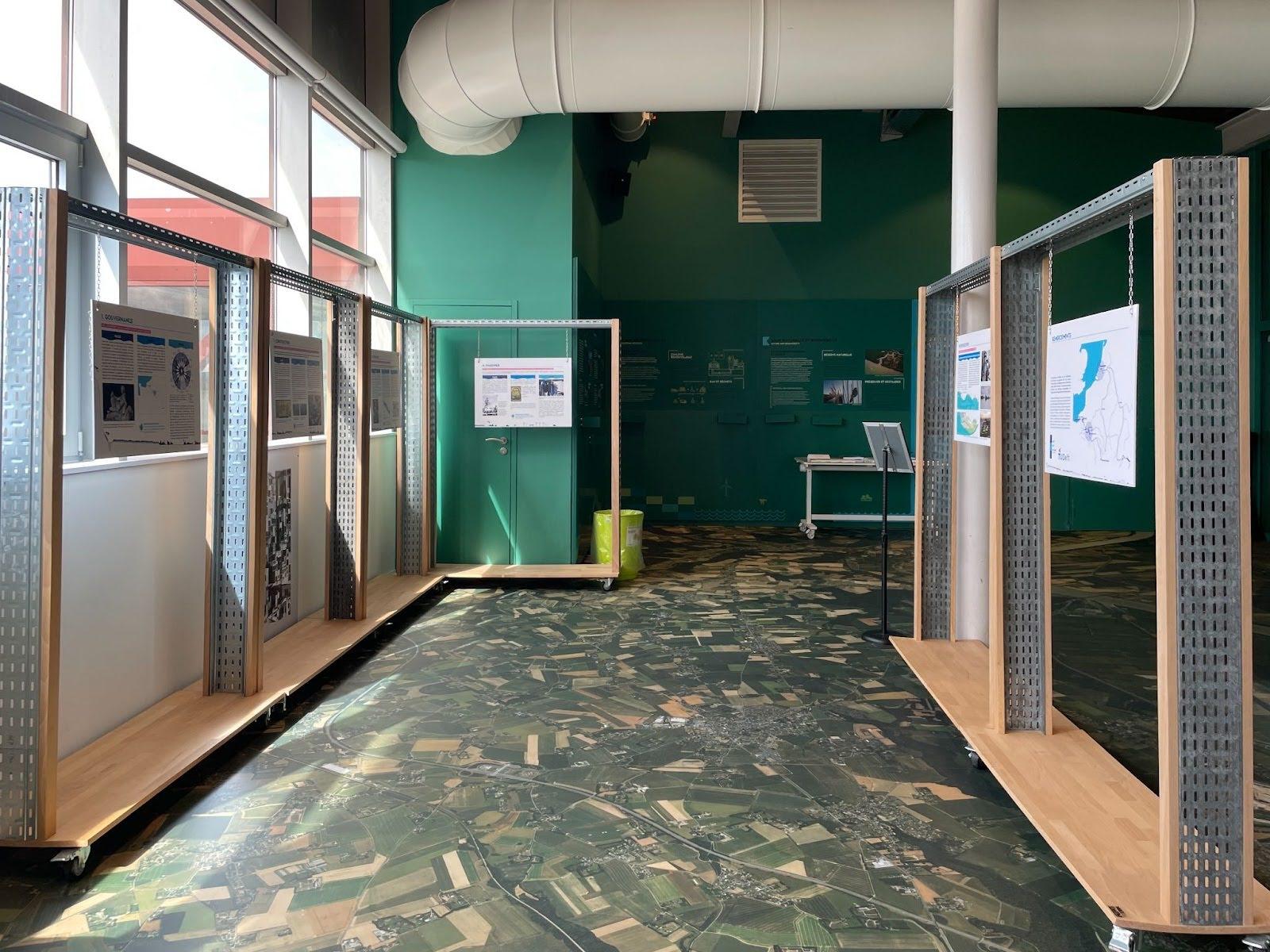Carola Hein, Léa Kayrouz, and Conor Hunter
Launching the Water Discovery Lab: From Rotterdam to Le Havre
The Water Discovery Lab, developed by a group of researchers from PortCityFutures, was first exhibited aboard De Zeemeuw, a “coaster” vessel currently moored in the Leuvehaven at the Maritime Museum of Rotterdam. The exhibition invited visitors to explore their relationship with water by examining it through various lenses. In its layout and activation, the exhibition was meant to engage citizens, including children, tourists, seniors, and professionals, to learn about water interactively and to build on existing narratives with personal stories (find more information about the Water Discovery Lab at the Zeemeeuw Ship here).
The Water Discovery Lab explored Dutch water systems through examples ranging from flood management tools used by water boards (Waterschappen) to river freight transport facilitated by Rijkswaterstaat, the Dutch Directorate General for Public Works and Water Management. These interventions, designed to facilitate human activities, have left a lasting impact on the natural ecosystem. For example, the Zalmhaven in Rotterdam, built in the 17th century, thrived due to (and named after) the bustling salmon trade, saw the disappearance of the salmon when sluices blocked the migration pathways, and industrialization led to the pollution of the water. The shift from water as a habitat for fish and a place for fishing to water as a carrier of ships and sewage shows the complexities inherent in the use of water systems. Organized along the themes of Governance, Space, Co-creation, and Imaginaries, the exhibition shows both overarching themes and local specifics. As such, the exhibition can be adapted to the sites the exhibition travels to.
Le Havre’s Port Center took on the invitation to take the Water Discovery Lab on its first trip outside of the Netherlands, reinterpreting the knowledge gathered from the Rhine and Maas basins to look at the past, present, and future of the Seine. As part of the exhibition, Greta Delsalle, along with Camille Leroy and Bénédicte Dufour from Le Havre Port Center, built upon and transformed the exhibition to address the case of the Seine and the city of Le Havre. The exhibition discusses how diverse stakeholders have been involved in shaping the governance system and historical and spatial conditions of Le Havre. It also highlights the vulnerability of port developments built on former marshlands and the potential for co-developing adaptive strategies as riverine ecosystems gain prominence in collective imaginaries.
The Water Values Game
Le Havre Port Center complemented the exhibition with a dynamic program, featuring a playthrough session of the Water Values serious game, led by Carola Hein and members of the PortCityFutures network. The Water Values serious game presents scenarios from cities with distinct water-related challenges—such as Venice, facing subsidence and rising sea levels, or Amsterdam, navigating urban expansion within constrained land availability. These case studies serve as catalysts for meaningful discussions among stakeholders, highlighting the interconnections between their actions and agendas. In Le Havre, the game explored local challenges, the necessary interventions, and the potential benefits of reintroducing port activities into collective imaginaries. While the game is designed for professionals seeking insights into water systems, younger audiences were engaged through a simplified “Match and Place” activity using the water icons, encouraging them to spatially anchor water-related elements in their perception of urban and natural landscapes.
Roundtable Discussion: The Seine and beyond
The broader dissemination of the Water Discovery Lab was further contextualized in a roundtable discussion featuring Cédric Fisson (GIP Seine Aval), Stéphanie Reymann (Maison de l’Estuaire), Sandrine Samson (HAROPA Port), and Carola Hein (TU Delft), addressing the evolving challenges of water management along the Seine. The discussion examined the evolution of the Seine estuary’s water cycle, emphasizing its ecological significance, the complexities of water management—including usage, infrastructure, and biodiversity—and the intersection of environmental concerns with economic imperatives.
Through these initiatives, the Water Discovery Lab and Water Values game continue to evolve as tools for knowledge exchange, fostering dialogue on the intricate relationships between water, governance, creation, imaginaries, and urban development across different geographic and cultural contexts. Both adopt a similar approach by emphasizing how past actions shape present conditions, encouraging audiences and players to reflect on historical decisions and their consequences for future development.
Figure 1–3: Participants collaboratively explore water governance scenarios during the playthrough session of the Water Values game facilitated by Carola Hein. (Source: Lea Kayrouz, 2025)



Acknowledgments
This blog post has been written in the context of discussions in the LDE PortCityFutures research community. It reflects the evolving thoughts of the authors and expresses the discussions between researchers on the socio-economic, spatial and cultural questions surrounding port city relationships. This blog was edited by the PortCityFutures editorial team: Yi Kwan Chan.
